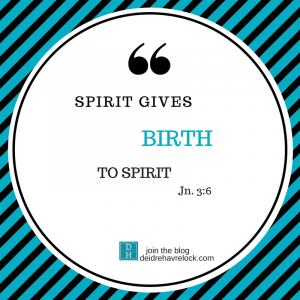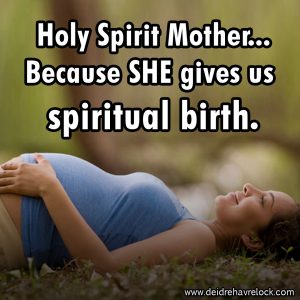 The woman in Revelation 12 is the actual image of the Holy Spirit
The woman in Revelation 12 is the actual image of the Holy Spirit
However, the negative and restrictive view of women that the church has embraced has clouded our vision. Therefore, just as women have had to struggle to be accepted as “real persons” with gifts to help and lead, so too has the feminine aspect of God sought to reveal Herself. At the very heart of God’s feminist movement lies a stunning revelation of God–not only as man–but also as woman.
Foundational Teachings
- The woman in Rev. 12 is clothed with the Sun because she is clothed with Christ;
- the moon is under her feet because she rules the night;
- adorning her head is a crown of 12 stars because the Holy Spirit was first sent to the children of Israel;
- she is mother to Jesus and she has other children because the Spirit gives birth.
She is clothed with sun, the moon is under her feet, adorning her head is a crown of twelve stars.
I struggled and prayed about this verse for a long time. What does the Holy Spirit have to do with the sun, moon and stars? But then I found the passage in Genesis 37:9-10 where Joseph dreams the sun and moon and eleven stars bow down to him. Joseph’s father–Jacob–is stunned at this revelation and asks him, “Will your mother and I and your brothers (he has 11 brothers) actually come and bow down to the ground before you?” This happens to be the correct interpretation of Joseph’s dream because, as the story goes, Joseph eventually becomes a great leader in Egypt: “[Pharaoh] had [Joseph] ride in the chariot of his second-in-command; and they cried out in front of him, “Bow the knee!” (Gen. 41:43). Since Joseph’s family ends up moving to Egypt, the family does actually come to bow down to him (Gen. 42: 6). Therefore, since the earthly constellations represent a family—the sun and moon representing parents and the stars representing children (there are 12 sons including Joseph) —then the unique presentation of the woman in Revelation 12 tells us of her role in a very special family.
Since in Joseph’s dream stars were considered children, the twelve stars on the woman’s head represents the 12 tribes of Israel—the people who originate from the 12 sons of Jacob—the original people to whom the Holy Spirit was sent. God’s chosen children:
On that day the Lord their God will save them [the Israelites] for they are the flock of his people; for like the jewels of a crown they shall shine on his land (NRS Zech. 9:16).
God said, “Make your dwelling in Jacob, and in Israel receive your inheritance . . . and so I [Wisdom] was established in Zion” (Sirach 24:8,10).
Given that the sun and the moon in Joseph’s dream represent parents, in order to determine which (sun or moon) represents our Father and which represents our Mother we must search the scriptures and there we find:
Of the heavens has God made a tent for the sun, which is as a bridegroom coming out from his chamber; and it rejoices as a strongman to run his course (Ps. 19:4-5).
Because of scriptures like the above, we can confidently say that Jesus is represented by the sun since Jesus refers to himself as “the bridegroom” while speaking to his disciples about his impending, sacrificial death:
And Jesus said to them, “Can [you] the friends of the bridegroom mourn as long as the bridegroom is with them? But the days will come when the bridegroom will be taken away from them, and then they will fast” (Mt. 9:15).
Other verses that speak of Jesus being represented by the sun are:
The rising Sun has come from on high to visit us, to give light to those who live in darkness and the shadow dark as death, and to guide our feet into the way of peace (NJB Lk. 1:78-79).
He [Jesus] was transfigured before them. His face shone like the sun, and His clothes became as white as the light (Mt. 17:2).
Therefore, Jesus is the sun—he represents the Father, as stated in John 14:9: “Whoever has seen me [Jesus] has seen the Father.” Since the sun represents Jesus, this means the woman is then represented by the moon. Consequently, just as our natural moon reflects the light of the sun so too does the woman; after all, she is “clothed” with the sun, which means she is clothed with Jesus:
Instead, put on the Lord Jesus Christ as your clothing (NIV Rom. 13:14).
As the chosen of God, then, the holy people whom he loves, you are to be clothed in heartfelt compassion, in generosity and humility, gentleness and patience. Bear with one another; forgive each other if one of you has a complaint against another. The Lord has forgiven you; now you must do the same. Over all these clothes, put on love, the perfect bond (NJB Col. 3:12-14).
The natural heavens—sun, moon, and stars—represents a family, our family. Jesus is the shinning sun (the image of the invisible Father); he has made God known. The Holy Spirit is the moon, reflecting the light of Christ in us and to the world–she is clothed with compassion, humility, gentleness, patience. And those who belong to God, through Jesus and the Spirit, are stars—clothed with God’s Light and God’s divine nature.
But Why is The Moon Under the Woman of Revelation 12’s Feet?
We can gain understanding from scripture as to why the moon is under the feet of the woman by studying the phrase “under His feet” which is used many times throughout the Old and New Testament:
For He [Jesus] must reign till He has put all enemies under His feet. The last enemy that will be destroyed is death (1 Cor. 15:25-26).
He bowed the heavens also, and came down with darkness under His feet (2 Sam. 22:10).
David himself, by the Holy Spirit, declared, “The Lord said to my Lord, ‘Sit at my right hand, until I put your enemies under your feet “‘ (NRS Mk. 12:36).
It is evident from scripture that having things under your feet makes them subject to you—you rule over that thing or person. Understanding the ramifications of being under someone’s feet helps us to see the picture of Revelation 12 more clearly: “She is clothed with the sun and she has the moon under her feet.” The moon is, therefore, subject to her. But why is the moon subject to the Spirit? To understand this, see the following verses that speak to us about the purpose of the sun, moon and stars:
To Him who made great lights, For His mercy endures forever. The sun to rule by day, For His mercy endures forever; The moon and stars to rule by night, For His mercy endures forever (Ps. 136:7-9).
In the above, we see the sun’s purpose is to “rule by day.” In other words, Jesus (the sun) rules the day. The moon’s purpose, however, is to “rule by night.” Therefore, the symbol of the moon placed under the Spirit’s feet is there because she rules the night. But what exactly does “rule by day” and “rule by night” mean? To find out we need to study “day” and “night (or darkness)” in scripture. They are first mentioned in Genesis 1:
The earth was without form, and void; and darkness was on the face of the deep. And the Spirit of God was hovering over the face of the waters. Then God said, “Let there be light”; and there was light. And God saw the light, that it was good; and God divided the light from the darkness. And he called the light Day and the darkness He called Night” (Gen. 1:2-5).
Notice here how creation began with darkness or Night (and the Spirit ruled by hovering over the waters). When Christ (the Light) came, suddenly it was now Day: Jesus said, “I am the light of the world. He who follows Me shall not walk in darkness, but have the light of life” (Jn. 8:12). Therefore, Adam and Eve were created during the Day—when Christ ruled. At this point, Adam and Eve were clothed with the “light” of Christ and so they were not ashamed (Gen. 2:25).
However, once Adam and Eve sinned, the light of Christ did not shine on them. Without the light of Christ clothing them, Adam and Eve now realized their shame (nakedness and sin) and they attempted to cover themselves with leaves (Gen. 3:7). Because of humanity’s sin, once again darkness covered the earth:
For behold, the darkness shall cover the earth, And deep darkness the people. But the Lord will arise over you (Isa. 60:2).
Then when Christ was born into the world—this time in the flesh—humankind was once again in the light of Day. Albeit for just a short time:
The people who walked in darkness have seen a great light; those who lived in a land of deep darkness-on them light has shined . . . . For a child has been born to us, a son given to us; authority rests upon his shoulders; and he is named Wonderful Counselor, Mighty God, Everlasting Father, Prince of Peace (NRS Isa. 9:2, 6).
Then Jesus said to them, “A little while longer the light is with you. Walk while you have the light, lest darkness overtake you; he who walks in darkness does not know where he is going. While you have the light, believe in the light, that you may become sons of light” (Jn. 12:35-36).
When Jesus ascended into heaven, humanity was once again thrust into darkness—our “sun” was gone. However, we who believe in Christ are of the Day, even though Christ’s Day has yet to dawn. We are in Jesus even though Jesus has not yet returned to rule. As 1 Thessalonians 5:5-6 says, “You are all sons of light and sons of the day. We are not of the night nor of darkness. Therefore let us not sleep, as others do, but let us watch and be sober.” Until Jesus returns, however, we must learn to live in and overtake this present darkness. We do that with the help of the moon—God’s Holy Spirit—the Spirit of Wisdom and Revelation whom Jesus sent to us precisely to keep us safe during this time of darkness:
And I will pray the Father [said Jesus], and He will give you another Helper, that He [or She] may abide with you forever, the spirit of truth. … I will not leave you orphans [without a parent] (Jn. 14:16-18).
For she [Wisdom] knows and understands all things, and she will guide me wisely in my actions and guard me with her glory (Wisdom 9:11).
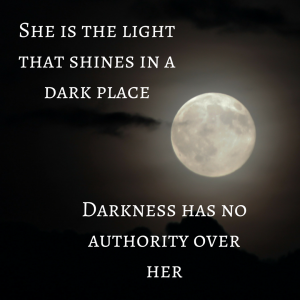
We also have the prophetic word made more sure, which you do well to heed as a light that shines in a dark place, until the day dawns and the morning star [sun] rises in your hearts; knowing this first, that no prophecy of Scripture is of any private interpretation, for prophecy never came by the will of man, but holy men of God spoke as they were moved by the Holy Spirit (2 Pet. 1:19-21).
In the above verses, Peter identifies the prophetic word as “a light that shines in a dark place” [i.e. the moon], which one would do well to heed until the day dawns. The prophecies of the Old Testament are then spoken about as being not born of man, but by the Holy Spirit. Prophecy is speaking the words of the Holy Spirit—the thoughts and reflections of God–God’s Holy Wisdom. You will also remember that the whole church is meant to be prophetic (hearing, obeying and speaking the words of the Holy Spirit). This lifestyle is possible only through seeking the Wisdom:
Get wisdom; get insight: do not forget, nor turn away from the words of my mouth. Do not forsake her, and she will keep you; love her, and she will guard you (NRS Prov. 4:5–6).
Although she [Wisdom] is but one, she can do all things, and while remaining in herself, she renews all things; in every generation she passes into holy souls and makes them friends of God, and prophets (Wisdom 7:27).
She was pregnant and she gave birth to a son, a male child, who is to rule all the nations
Let me first say it is logical to assume this woman clothed with the sun, giving birth to Jesus is Mary. After all, Mary is the one who physically birthed Christ. Mary was, without any doubt, Jesus’ earthly mother. She alone was given a most unique service: she nursed Jesus, attended to his needs, and as the movie The Passion of Christ illustrated it was Mary to whom Jesus, as a child, would have run to for comfort. And even more than all this, Mary is the only human who will for eternity carry the memories and bonds of love that exist between earthly mother and the God-child. There will never be another like Mary; yet, there is another woman who plays a vital role in giving birth to Jesus.
Yes, there is another who shared in the birthing process of Jesus and to ignore this other presence is not only a mistake but also a tragedy. The other person who birthed Christ is the Holy Spirit:
Now the birth of Jesus Christ was as follows: After His mother Mary was betrothed to Joseph, before they came together, she was found with child of the Holy Spirit. Then Joseph her husband, being a just man, and not wanting to make her [Mary] a public example [of adultery], was minded to put her away secretly. But while he thought about these things, behold, an angel of the Lord appeared to him in a dream, saying, “Joseph, son of David, do not be afraid to take to you Mary your wife, for that which is conceived in her is of the Holy Spirit (Mt. 1:18-20).
In the above, the Bible uses the word “ĕk” (translated “of” or “from”) to denote origin as in, “that which is conceived in her is of the Holy Spirit.” This word is extremely important because the New Testament uses the Greek word “ĕk” in connection to a woman giving birth; “ĕk” means, “to bring forth from a woman,” or “out from a woman.” It is from this word that Jesus first introduced his church the “ĕkklēsia:”
And I also say to you that you are Peter, and on this rock I will build My church [ĕkklēsia], and the gates of Hades shall not prevail against it (Mt. 16:18).
The Greek word “ĕkklēsia” is a compound word. The two words that make up Jesus’ word for church are “ĕk” and “kalĕō;” “ĕk” means “out from” (by inference “birth” from a woman) and “kaleo” meaning “to call.” So the church is, in effect, made up of a large group of people who are “birthed and called” from the Spirit. In this sense, the “ĕkklēsia” is a “building” of people or a “city” of people—birthed from the Spirit.
What is born of the flesh is flesh, and what is born of the Spirit is spirit. Do not be astonished that I said to you, “You must be born from above” (NRS Jn. 3:6–7).
Before Jesus introduced the term “ekklesia” to denote his Spirit-birthed group of believers the Jewish group of believers were called a “synagogue.”
When a father is spoken about as the procreating factor the word the New Testament uses is “gĕnnaō” which means “begot” or even to “father a child.” See the following examples where the words “ĕk” (by or out from a woman) and “gĕnnaō” (begot or conceived from a father) are used:
Abraham begot Isaac, Isaac begot Jacob, and Jacob begot Judah and his brothers. Judah begot Perez and Zerah by [“ĕk” out of] Tamar, Perez begot Hezron, and Hezron begot Ram. Ram begot Amminadab, Amminadab begot Nahshon, and Nahshon begot Salmon. Salmon begot Boaz by [“ĕk” out of] Rahab, Boaz begot Obed by [“ĕk” out of] Ruth, Obed begot Jesse, and Jesse begot David the king. David the king begot Solomon by [“ĕk” out of] her [Bathsheba] who had been the wife of Uriah (Mt. 1:2-6).
The Greek scriptures use precise words to reveal the origin of Christ, words and phrases we may not totally understand at first glance, but Joseph certainly would have. In other words, Joseph knew when the angel said “Joseph don’t be afraid because the origin of this baby is “by” (ĕk) the Holy Spirit,” that this baby was wholly God’s birthed into her “by” another woman. His wife was not being impregnated by the male Spirit of God. Rather, the feminine aspect of God would supervene and the miraculous power of the Holy Spirit would envelope Mary birthing into her someone extremely special. The Holy Spirit was not the maleness of God come to father Christ—Christ already was—the Holy Spirit simple birthed Christ into Mary. (How that worked, I don’t have a clue. Somehow the “Breath of God” carried the “Word of God” and the Word became “flesh.”) After this, Jesus then physically entered this world “by” Mary. So there are obviously two persons—in fact, two women—involved in the birth of Christ. And to ignore one for the sake of the other is a huge mistake.
She was crying out in birth pangs, in the agony of giving birth
To firmly decide who the woman in Revelation 12 is every detail about her must be studied and understood for no detail would be given by God without purpose. For example, Revelation 12 tells us the woman, “cried out in pain as she was about to give birth.” So the first question to be asked is, “Is crying out in pain something the Holy Spirit would do?” Our first inclination is to say, “Of course not.” After all, it was Eve (and not the Spirit) who sinned in the garden of Eden and received God’s decree: “To the woman [God] said, “I will greatly increase your pangs in childbearing; in pain you shall bring forth children” (Gen.3:16).
So why would the Holy Spirit cry out in pain during childbirth? We find the answer to this question within scripture:
For we know that the whole creation groans and labors with birth pangs together until now. And not only they, but we also who have the firstfruits of the Spirit, even we ourselves groan within ourselves, eagerly waiting for the adoption, the redemption of our body (Rom. 8:22-23).
Likewise the Spirit also helps in our weaknesses. For we do not know what we should pray for as we ought, but the Spirit Himself [or Herself] makes intercession for us with groanings which cannot be uttered (Rom 8:26).
It is evident from these verses that birth pangs, groans, and cries are something the Holy Spirit experiences, since those who have the firstfruits of the Spirit “groan and labor” as the Spirit eagerly awaits the final redemption—the redemption of our bodies. In fact “birthing” has become the term given to those intense times of prayer—times when the Holy Spirit places a great burden in someone (usually felt in the stomach area). This burden can only come out through petitions, cries, and groanings. It seems then, all this crying and groaning has to do with emotional pain mixed with the hope and eager expectation of birth:
A woman, when she is in labor, has sorrow because her hour has come; but as soon as she has given birth to the child, she no longer remembers the anguish, for joy that a human being has been born into the world. Therefore you now have sorrow; but I will see you again and your heart will rejoice, and your joy no one will take from you (Jn. 16:21-22).
The Holy Spirit groans, travails, and cries for the will of God to manifest on earth. These are not cries and groans of hopelessness and physical pain, but rather eager expectation of birth … something is coming and it can’t be stopped! When we as females undergo the natural birthing process, patience becomes a difficult virtue as we wait eagerly for the manifestation of new life; then suddenly pain stings us and we know it’s time; when we’re in deep travail the pain is so intense it feels like we could quite possibly die. The fact is, birth would be a completely horrible experience were it not for that eager expectation of what is about to manifest, the awaiting joy of new life. Because of this, the moans, the groans, and the tears—they are all done with great, eager expectation. In fact, one of the Holy Spirit’s many Biblical names is “the Spirit of life.” Why? Because this is part of woman’s purpose: to bring forth new life and new beginnings.
She is the Mother of those who hold the testimony of Jesus
The woman in Revelation 12 is obviously the mother of Jesus, but Revelation 12:17 tells us the dragon made war with the rest of her offspring. So it seems this woman is not just the mother of Jesus. She is also the mother of many others. Therefore, the next question we should be asking is the same question Nicodemus asked Jesus: “Can one enter a second time into the mother’s womb and be born?” (Yes, Nicodemus, yes one can!)
Now there was a Pharisee named Nicodemus, a leader of the Jews. He came to Jesus by night and said to him, “Rabbi, we know that you are a teacher who has come from God; for no one can do these signs that you do apart from the presence of God.” Jesus answered him, “Very truly, I tell you, no one can see the kingdom of God without being born from above.” Nicodemus said to him, “How can anyone be born after having grown old? Can one enter a second time into the mother’s womb and be born?” Jesus answered, “Very truly, I tell you, no one can enter the kingdom of God without being born of water and Spirit. What is born of the flesh is flesh, and what is born of the Spirit is spirit. Do not be astonished that I said to you, ‘You must be born from above.’ The wind blows where it chooses, and you hear the sound of it, but you do not know where it comes from or where it goes. So it is with everyone who is born of the Spirit.”(Jn 3:1–8).
Your spiritual Mother is the Holy Spirit
The Holy Spirit is the one who gives us spiritual birth–through her we receive eternal life. This is why she is the mother to those who “hold the testimony of Jesus:
Those who believe in the Son of God have the testimony in their hearts…. And this is the testimony: God gave us eternal life, and this life is in his Son (NRS 1 Jn 5:10–11).
Therefore, if you believe in Jesus then you hold the testimony of eternal life in your hearts–you too have a Mother. You are not motherless. Your spiritual mother is the Holy Spirit.
*I have used the New Kings James Version unless otherwise noted.
COPYRIGHT © 2017 Deidre Havrelock
Subscribe to Unlock the Rest!
Or simply enter your email address if you're already subscribed!


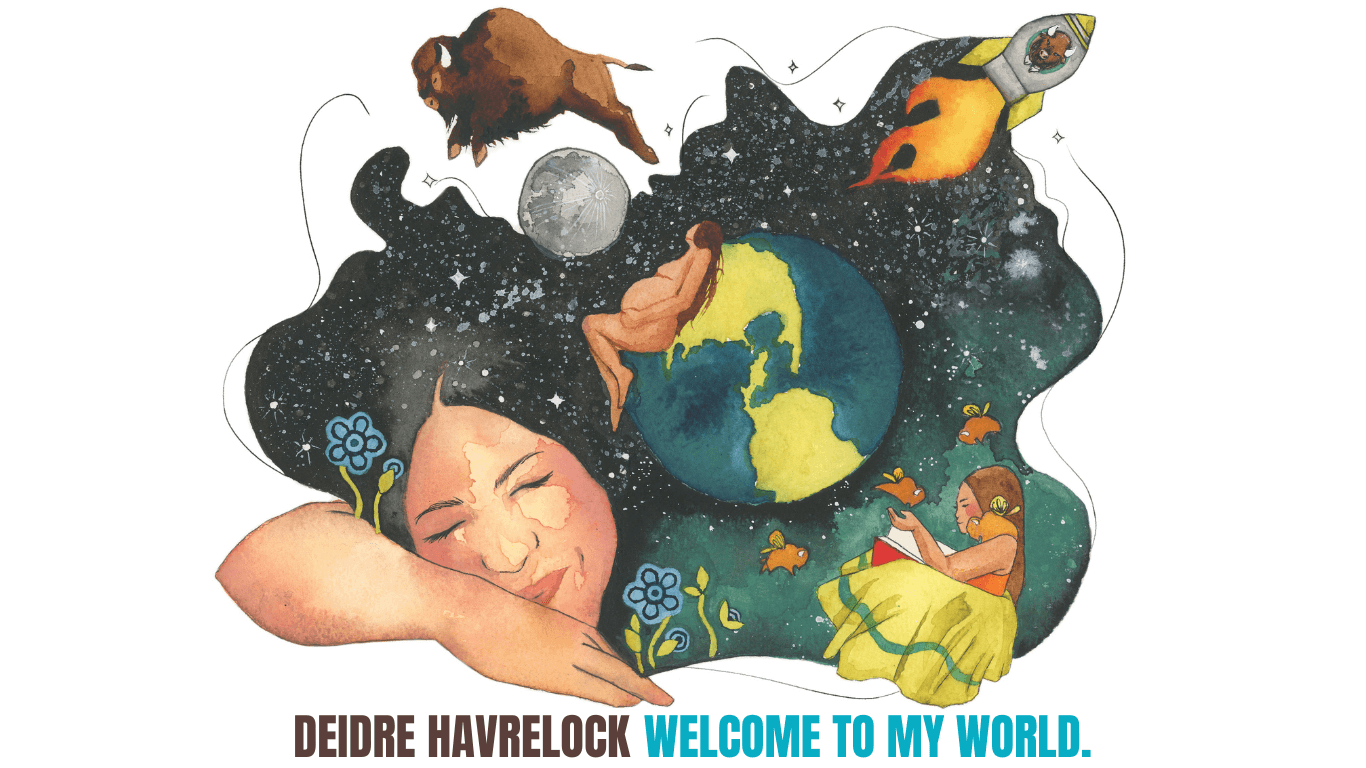
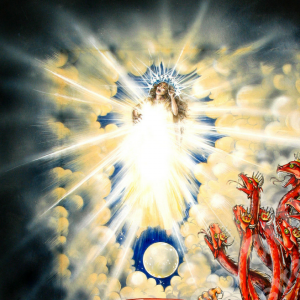 The woman in Revelation 12 is the actual image of the Holy Spirit
The woman in Revelation 12 is the actual image of the Holy Spirit